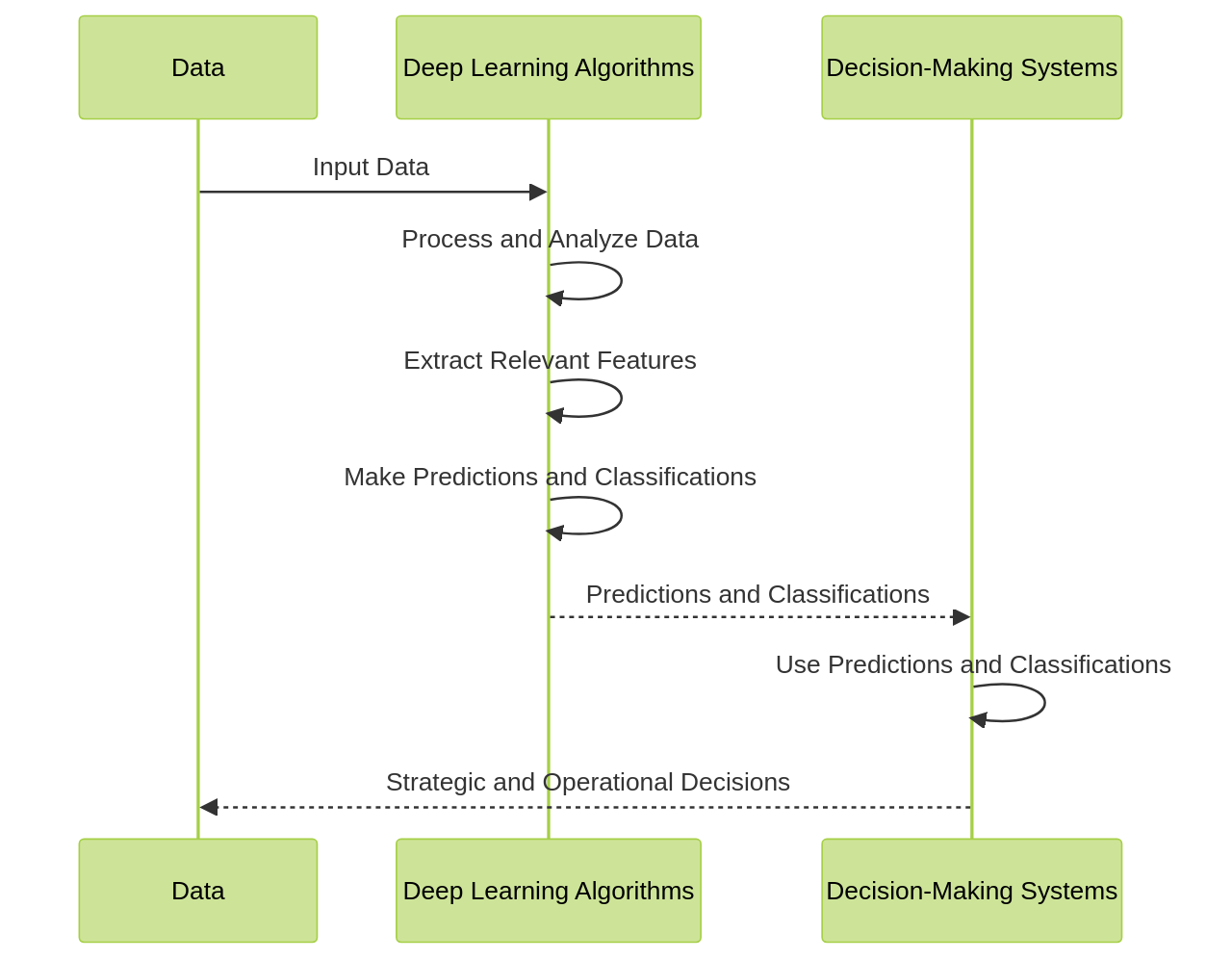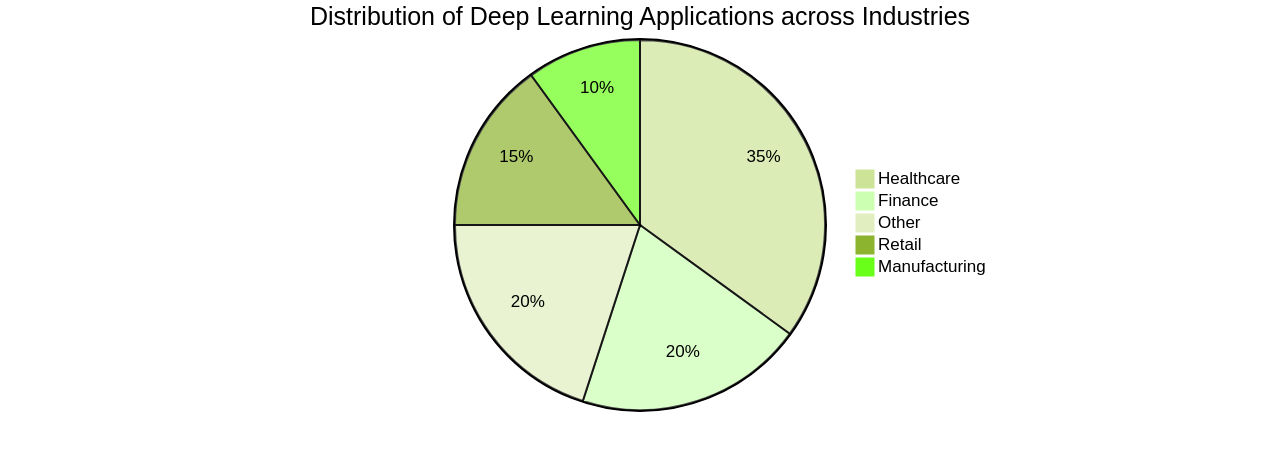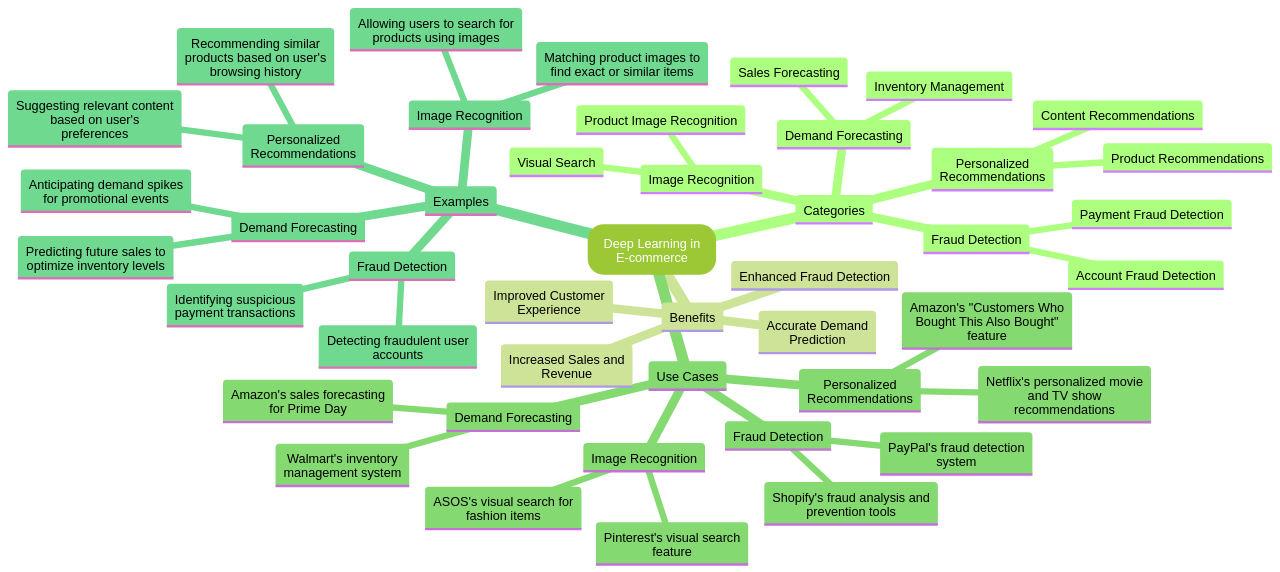Introduction
Deep learning, a powerful aspect of artificial intelligence (AI), is revolutionizing the e-commerce landscape. By mimicking human learning from experience, deep learning enables businesses to analyze customer behavior, predict trends, and personalize user experiences, ultimately driving sales and business growth. It has proven to be a game changer for notable e-commerce platforms like Etsy and MercadoLibre, allowing them to deliver tailored content and recommendations, optimize product categorization, and enhance overall customer experience. In this article, we will explore the transformative role of deep learning in e-commerce solutions, its benefits, and real-world case studies that highlight its successful implementation.
Harnessing the power of deep learning in e-commerce brings numerous advantages. By analyzing vast amounts of customer data, deep learning algorithms can offer personalized product recommendations, improve fraud detection and security measures, and enhance search and recommendation systems. This leads to improved customer experience, increased sales, enhanced security, and more efficient operations. Companies like BestToolbars specialize in leveraging deep learning for operational enhancement, offering predictive analytics, dynamic automated demand forecasting, and price optimization services. Their team of experts collaborates to create innovative solutions tailored to clients' needs, making them a cost-effective and flexible choice for e-commerce businesses. In this article, we will delve into the potential of deep learning in driving innovation, exploring its applications in various industries and providing insights into successful implementation strategies.
1. Understanding the Concept of Deep Learning and Its Business Implications
Deep learning, an advanced aspect of AI, has the power to mimic human learning from experience. It's the crux of many innovative technologies, such as autonomous vehicles, distinguishing between a pedestrian and a lamppost, or recognizing a stop sign. Moreover, it powers voice control in consumer devices like smartphones, smart speakers, and virtual assistants, thanks to neural networks that process and interpret spoken commands. These networks, trained on large datasets of voice samples, improve accuracy and natural language understanding over time through continuous learning and refinement.
In e-commerce, deep learning proves to be a game changer. It lets businesses analyze customer behavior, predict trends, and customize user experiences to bolster sales and business growth. Notable e-commerce platforms like Etsy have capitalized on this technology to deliver personalized content and recommendations, enhancing the user experience and driving sales. They've transitioned to a neural ranking model, using custom embeddings and text representations, which despite requiring longer training windows and more data, has surpassed the decision tree model in performance.
Likewise, MercadoLibre, Latin America's largest online retailer, has utilized a supervised learning approach for classifying products into known categories. This strategy has optimized and extended category trees, resulting in improved item findability and conversion rates.
Harnessing the power of deep learning in e-commerce brings in several benefits. Deep learning algorithms can analyze large amounts of customer data including browsing history, purchase behavior, and product preferences. This allows e-commerce companies to offer tailored product recommendations and personalized marketing campaigns, improve fraud detection and security, and enhance search and recommendation systems. The end result is improved customer experience, increased sales, enhanced security, and more efficient operations.

A company like BestToolbars can help businesses unlock the potential of this technology.
Unlock the potential of deep learning for your business with BestToolbars
Offering services like predictive analytics, dynamic automated demand forecasting, and price optimization, they enable businesses to leverage AI and deep learning for operational enhancement. Their team of software developers, designers, and engineers work together to create innovative solutions specific to client needs. They offer one-on-one consultations with their experts and a range of consulting services to help launch an MVP product and test its market fit. Their expertise and access to top-tier talent make them a cost-effective and flexible choice for e-commerce businesses.
While implementing these models at scale can present infrastructure challenges, the journey to launch these models, despite the delays and errors, results in cost savings and continual refinement. Deep learning thus holds the key to innovation and growth in e-commerce, providing businesses with the tools to enhance user experience, drive sales, and foster business growth.
2. How a Deep Learning Development Company Can Drive Innovation
Deep learning, an aspect of machine learning, has proven to be a revolutionizing tool in the tech world. It offers the capacity to analyze vast datasets, discern patterns, and automate tasks, significantly enhancing the efficiency of business operations.
Deep learning algorithms such as convolutional neural networks (CNNs), recurrent neural networks (RNNs), and generative adversarial networks (GANs) can be employed based on the data analysis requirements. CNNs shine in image analysis and recognition, RNNs excel in sequential data analysis like natural language processing, and GANs are used for generating synthetic data for various applications like data augmentation and anomaly detection.
Automation of routine tasks with deep learning not only improves accuracy and efficiency but also liberates human resources for more complex and strategic work. This leads to increased productivity, cost savings, and improved process reliability.
Deep learning's predictive capabilities are a game-changer in decision-making processes. Deep learning algorithms extract relevant features from large data sets, making accurate predictions and classifications, improving decision-making in complex, data-rich domains. This learning process is continuous and evolves with more exposure to data, making it adaptable to ever-changing scenarios.

Companies like BestToolbars have utilized deep learning to spur innovation.
Drive innovation with deep learning solutions from BestToolbars
The company’s team of developers and designers create custom solutions that harness the power of deep learning, crafting innovative solutions for specific needs.
However, the potential of deep learning extends beyond these applications. Amazon Ads, for instance, uses PyTorch and AWS Inferentia to scale models for ads processing, achieving a substantial 71% reduction in inference costs. On the other hand, Uber has developed DeepETA, a model that improves the accuracy of estimated arrival times, thus enhancing their service delivery.
Deep learning applications have proliferated in industries like healthcare, finance, retail, and manufacturing. In healthcare, deep learning algorithms are employed for medical image analysis, disease diagnosis, and drug discovery. In finance, they help with fraud detection, risk assessment, and algorithmic trading. In retail, they improve customer experience through personalized recommendations and demand forecasting, and in manufacturing, they optimize production processes, detect anomalies, and enable predictive maintenance.

The transformative potential of deep learning is undeniable. As more businesses recognize and harness this potential, the landscape of innovation will continue to evolve. Businesses seeking to implement deep learning solutions can schedule a consultation with experts like Oleg Grebenyuk, Nik Gavrilov, Tom Straszewski, or Chris Ashbaugh to gain insights into cost-effective, flexible solutions, MVP launches, market fit testing, and more.
3. The Role of Deep Learning in E-commerce Solutions: A Focus on VR/AR and AI Technologies
Deep learning is a transformative force in the e-commerce sphere, particularly in the integration of VR, AR, and AI technologies. By analyzing customer behavior and preferences, deep learning algorithms can accurately suggest products that are likely to be of interest to individual shoppers. This personalization of content, driven by an analysis of individual customer behavior and preferences, has the potential to revolutionize the shopping experience.
In the realm of VR and AR, deep learning can be harnessed to develop applications that offer immersive, interactive shopping experiences that go beyond the traditional. Techniques such as advanced image recognition and natural language processing, which are enabled by deep learning, facilitate features like virtual try-ons and personalized product recommendations, enhancing the overall shopping experience.
Furthermore, AI chatbots powered by deep learning can efficiently and effectively address customer inquiries and issues, enhancing the overall customer experience. The development and deployment of these chatbots involve training deep learning models for natural language processing (NLP) tasks, such as intent recognition and sentiment analysis, which can be integrated into the chatbot's architecture to handle user queries effectively.
Deep learning applications in e-commerce solutions are numerous, including personalized product recommendations, image recognition for automatic tagging and categorizing product images, and fraud detection by analyzing patterns and anomalies in transaction data. These applications greatly enhance the e-commerce experience by improving product recommendations, search capabilities, and security.

Online retailers, such as MercadoLibre, have successfully leveraged deep learning to improve the efficiency and automation of their product categorization and classification processes. Additionally, companies like Amazon Ads have utilized deep learning models to significantly reduce inference costs in ads processing.
Companies like BestToolbars have a proven track record in successfully implementing these technologies, driving the growth and success of online sales and operations.
Boost your online sales and operations with BestToolbars' deep learning solutions
Deep learning algorithms are used to understand user preferences and behaviors, allowing for personalized recommendations and product suggestions.
Deep learning offers a multitude of opportunities for enhancing e-commerce solutions, from creating personalized shopping experiences to optimizing online sales and operations. By leveraging deep learning, businesses can gain valuable insights and make data-driven decisions to enhance their online sales and operations. These solutions demonstrate the power of deep learning in revolutionizing the e-commerce industry.
4. Case Study: Successful Implementation of Deep Learning for Business Growth
MercadoLibre, the e-commerce giant of Latin America, witnessed a substantial enhancement in their online operations after joining forces with Tryolabs, a firm specializing in machine learning and data science. Their collaboration was focused on refining their product catalog and category tree, a task that was notoriously labor-intensive and time-consuming. Tryolabs utilized advanced machine learning techniques to automate this process, resulting in significant improvements in item discoverability and conversion rates, thereby positively impacting MercadoLibre's overall business growth.
This case study is a potent demonstration of the transformative potential of deep learning and AI technologies in the e-commerce realm. It underscores the tangible benefits businesses can achieve through such implementations. For instance, deep learning algorithms can be employed to create product recommendation systems, analyzing copious amounts of customer data, such as browsing history, purchase history, and preferences, to deliver personalized product suggestions. This not only enhances the customer experience but also boosts sales by proposing relevant products to individual customers.
Deep learning can also be harnessed for fraud detection in e-commerce transactions. By scrutinizing patterns and anomalies in transaction data, these algorithms can identify potentially fraudulent activities, thereby minimizing financial losses for e-commerce businesses.
When it comes to implementing deep learning in e-commerce, there are several best practices to bear in mind. It begins with gathering and preparing a large dataset that is representative of your e-commerce domain. It's crucial to choose the appropriate deep learning architecture that aligns with your e-commerce use case, carefully train, and fine-tune the deep learning models, and continuously monitor and evaluate their performance in a production environment.

Moreover, implementing deep learning requires a robust infrastructure to support the computational requirements, such as GPUs, and effective data storage and processing pipelines. By adhering to these best practices, businesses can effectively leverage deep learning in e-commerce, improving various aspects of their business, such as personalized recommendations, fraud detection, and demand forecasting.
In the case of MercadoLibre, the partnership with Tryolabs allowed them to harness the power of deep learning to optimize their product offerings and enhance their customer experience, ultimately driving substantial business growth. This serves as a compelling illustration of the significant benefits of deep learning in e-commerce, offering a roadmap for other businesses to follow.
5. Overcoming Challenges in Implementing Deep Learning: A Guide for Businesses
Navigating the integration of deep learning into business operations can pose as a significant challenge, especially for organizations lacking a robust technical backbone. This is where the prowess of a specialized deep learning development firm, such as Besttoolbars, shines. They bring to the table not only the technical expertise needed to develop customized solutions that resonate with the unique requirements of the business but also offer ongoing support and maintenance.
The role of such a firm, however, goes beyond the mere technical implementation. They also play an instrumental role in helping businesses comprehend and maneuver the regulatory and ethical landscape that accompanies AI and machine learning.
Real-world experiences, such as those shared by Peter Gaon of Aquarium Learning, serve as invaluable resources. He highlights the necessity for continuous iteration on the model pipeline and a feedback loop to identify and prioritize issues with the models. He also introduces the idea of "clock time versus human time", emphasizing the objective of minimizing human intervention and the associated costs.
Consider the success story of Stripe Radar, Stripe's fraud prevention solution. It scrutinizes over 1000 characteristics of a potential transaction to evaluate the likelihood of fraud, delivering accurate decisions in less than 100 milliseconds. Through the evolution of its ML architecture from simple models to more intricate deep neural networks, Stripe has showcased the potency of continuous learning and adaptation in AI.
Moreover, Stripe has made significant progress in elucidating fraud decisions to users via features like Risk Insights. These features provide insights into the factors that contribute to a transaction's fraud score, highlighting the necessity for transparency and user comprehension in implementing deep learning solutions.
In essence, with the appropriate support, guidance, and a commitment to continuous learning and adaptation, businesses can effectively incorporate deep learning into their operations and leverage its numerous benefits. For a deeper dive into successful deep learning implementations, a visit to the Besttoolbars website can provide a wealth of case studies and success stories. They also offer market fit consulting services and access to top-tier talent for your specific needs.
Conclusion
In conclusion, deep learning is revolutionizing the e-commerce landscape by enabling businesses to analyze customer behavior, personalize user experiences, and predict trends. Notable platforms like Etsy and MercadoLibre have successfully implemented deep learning to deliver tailored content and recommendations, optimize product categorization, and enhance overall customer experience. By harnessing the power of deep learning, businesses can benefit from improved customer experience, increased sales, enhanced security measures, and more efficient operations. Companies like BestToolbars specialize in leveraging deep learning for operational enhancement, offering predictive analytics, dynamic automated demand forecasting, and price optimization services. Their expertise and flexible solutions make them a cost-effective choice for e-commerce businesses.
The transformative role of deep learning goes beyond e-commerce. It has applications in various industries such as healthcare, finance, retail, and manufacturing. Deep learning algorithms can be used for medical image analysis, fraud detection in financial transactions, personalized recommendations in retail, and optimizing production processes in manufacturing. As businesses recognize the potential of deep learning and harness its power for innovation, the landscape of various industries will continue to evolve.
To unlock the benefits of deep learning in e-commerce or other industries today, start now with BestToolbars' consultation services. They offer insights into cost-effective solutions tailored to your specific needs and access to top-tier talent for successful implementation strategies.





